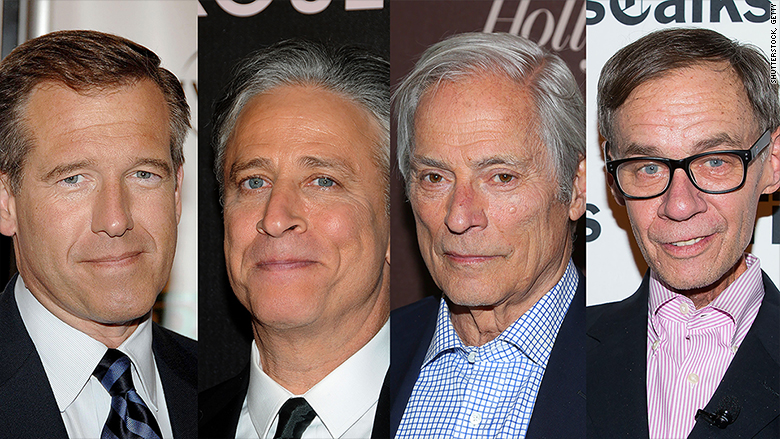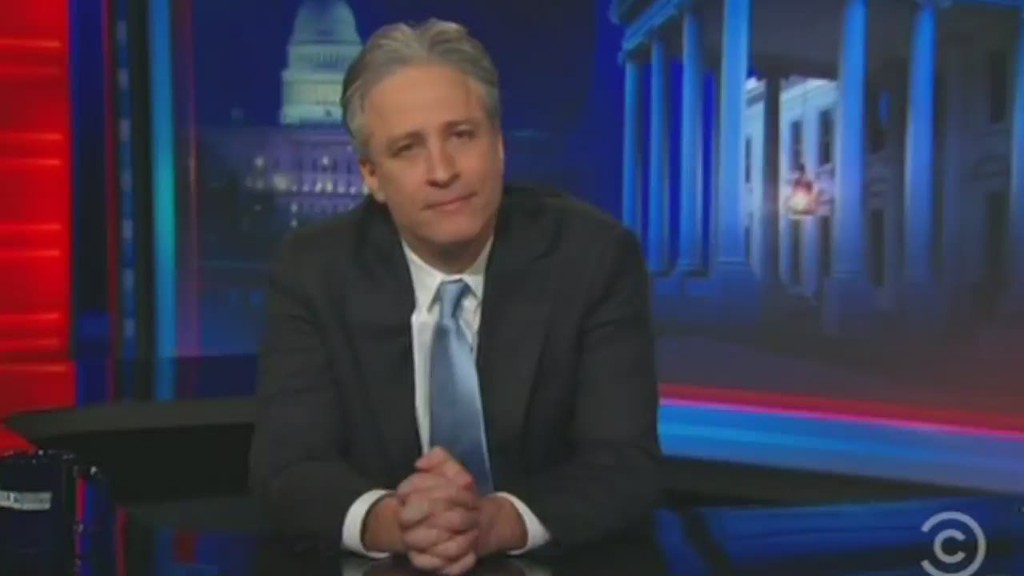
In just one week, the media world has lost four of its titans.
On Monday Brian Williams' name was still attached to the "NBC Nightly News," Bob Simon was preparing his latest and greatest "60 Minutes" segment, Jon Stewart's reign at "The Daily Show" was without an end point, and many were looking forward to David Carr's next "Media Equation" column at The New York Times.
"David Carr, Bob Simon, Jon Stewart, Brian Williams. Has there ever been a sadder week in journalism?" tweeted Andrew Wallenstein, co-editor-in-chief at Variety.
The week started with the announcement that Williams, America's single most popular news anchor, would be stepping aside for "several days" to take himself out of the news cycle that he created.
"He's been there. He'll be there," said advertisements for the 10th anniversary of Williams' tenure last year. Yet, by Tuesday Williams was suspended for six months, exiled from his post without a guarantee he'll ever return.
If the impact of losing Williams wasn't enough, in the same hour on Tuesday one of media's best and most popular critics, Jon Stewart, announced he was signing off "The Daily Show." His departure date is unclear.

"It's hard to fathom the scope of the void he will leave," wrote Frazier Moore, TV writer for the AP. "As a champion of enlightened phoniness in TV journalism, Stewart has proven himself to be one-of-a-kind, a fake who's unrivaled as the real deal."
While the loss of Williams and Stewart are perplexing, the loss of Bob Simon and David Carr are beyond tragic.
Simon, who died in a car accident on Wednesday night, was one of the most revered correspondents for "60 Minutes," if not for the whole journalism profession.
Simon, 73, was in the midst of finishing a story about a cure for Ebola when his life suddenly came to an end.
"RIP Bob Simon, a television storyteller without peer," tweeted New York Times media critic David Carr early Thursday morning.
Then, just like that, Carr himself was gone.
Carr, 58, died late Thursday night, collapsing in the newsroom he loved.

Not long after the news broke, Twitter (a place that Carr once called the "wired collective voice") overflowed with tributes from colleagues, friends, and even strangers who had wished they had known him.
"David was our champion," wrote New York Times film critic A.O. Scott. "He understood better than anyone how hard the job can be, how lonely, how confusing, how riddled with the temptations of cynicism and compromise. And yet he could make it look so easy, and like the most fun you could ever hope to have."
So as media's darkest week comes to a close, we press on.
It's ironic that this was also a week that saw the Twitter hashtag "#AdviceForYoungJournalists" trend worldwide.
So much about journalism can be learned from this week: hubris from Williams, wit from Stewart, consistency from Simon, and ferocious eloquence from Carr.
Many will look at this week and see the reasons why one should avoid a life lived on deadline, but there's much hope for the future of media.
Carr believed as much, saying at a commencement address at the University of California, Berkeley last year:
"Being a journalist... it's a grand, grand caper. You get to leave, go talk to strangers, ask them anything, come back, type up their stories, edit the tape. That's not gonna retire your loans as quickly as it should, and it's not going to turn you into a person who's worried about what kind of car they should buy, but that's kind of as it should be. I mean, it beats working."
Editor's note: This story was written from a place of deep respect and admiration for Simon and Carr. We regret our original first sentence to this story, have amended it, and sincerely apologize.


